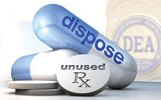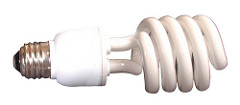When the weather gets warmer, it’s time to clean up and clean out! Besides dusting and scrubbing your living space, spring cleaning is a good time to make sure you get rid of possible poisons that you no longer need, such as expired medications.
 One good way to clean out your medicine cabinet is to take your expired or unneeded medications to a take-back event. For several years, the DEA has been holding medication take-back events twice a year at locations across the country—typically a local police department. Visit the DEA’s site to see if there is an event happening soon and to find a location near you.
One good way to clean out your medicine cabinet is to take your expired or unneeded medications to a take-back event. For several years, the DEA has been holding medication take-back events twice a year at locations across the country—typically a local police department. Visit the DEA’s site to see if there is an event happening soon and to find a location near you.
Even if there are no take-back events coming up, it’s important to get rid of old medications in a timely manner to help prevent poisonings. Visit our medication disposal page for some other suggestions safely getting rid of medications.
Spring cleaning is also a good time to make sure you’ve gotten rid of all your household hazardous waste. This includes all items that contain chemicals that can be harmful to health or the environment. If the label says the product is toxic, corrosive, reactive, explosive, ignitable or flammable, it is likely hazardous waste and cannot be thrown in your regular trash.
Household hazardous waste can include electronics, certain types of batteries, paint, mercury-containing products such as thermometers and fluorescent light bulbs, pesticides, gasoline and certain cleaning products. Many towns have special hazardous waste collection days when you can get rid of these items safely.
 |
| Compact fluorescent light bulbs contain some mercury, and should be disposed of as hazardous waste. Photo from SFHazWaste, Creative Commons. |
The best way to find out how to dispose of these items is to call your town office.
You can find more information regarding disposal in your state online:
There are also many alternatives to using hazardous products. The EPA’s Safer Choice Standard identifies products that are still effective but safer for people and the environment.
If you have questions about medications or household products, contact the NNEPC. We are here to help 24/7. Just call 1-800-222-1222, chat online or text POISON to 85511.




